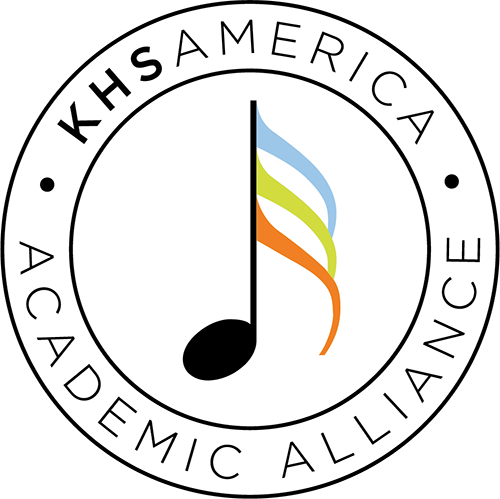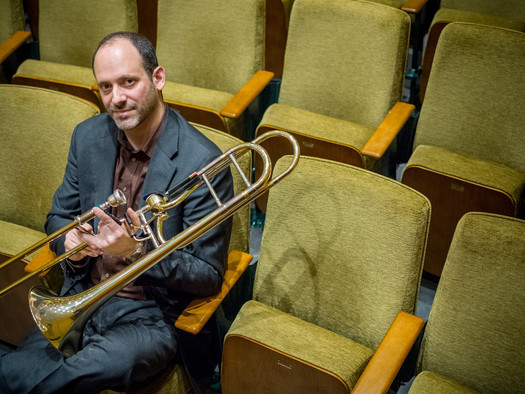Dear Parents:
As our school year winds down, I would like to congratulate you on completing the first year of your child’s instrumental music study! It’s amazing to think that only a few months ago, your child chose an instrument that “spoke to” them, and opened the case for the first time. We take this time to celebrate not only the hard work of your children, but also the mindsets that they have developed through their successes and their failures throughout their musical journey thus far.
It’s a fact that the majority of people who are literate in music learn it in a school setting, and we are extremely fortunate to provide music instruction through our school curricula. If students were not part of our school music program, there is very little chance they would seek to develop their musical skills outside the school setting — and that would be detrimental to their human growth.
As lucky as your child is to have had musical instrument instruction in school this year, let’s be clear about their time on task: If your child attended every weekly small group lesson for the entire year, they only received somewhere in the range of 14 total hours of instruction. Even though we have accomplished so much with so little time (can you believe that your child could not make a sound on their instrument a few months ago, and now we are playing full concerts!?), it’s too early for your child (and you) to decide to discontinue playing with such few hours on task under their belt.
It is crucial that you are aware of the positive benefits of learning to play a musical instrument — and one year of study is certainly not enough to gain all of them. You see, being a musician trains your child’s mind for success in every aspect of their life. The skills your child will learn over the next few years through music are transferable to every academic subject. Only through playing a musical instrument will your child learn the following:
- Life is not only about quantitative results. Through studying an instrument, your child has learned about creating quality music — the best sounds they can muster for the sake of making music, as opposed to the best possible numerical outcome on a test. Our goal has not been to quickly finish a piece of music and receive a final evaluation, rather to enjoy the process of creating something from nothing — as individuals and in a group — and making music in the process.
- Our brains and bodies have incredible potential. We started with nothing and ended with a set of concerts. You must have faith that your child has enormous potential, and it is up to you to continue to use our instrumental music program to continue to exploit that potential. This is not about your child becoming a professional musician, it’s about you believing in your child’s potential to learn and grow through the discipline of learning an instrument.
- Embracing failure is life’s greatest skill. Human development is a result of responses to problems and failures. Parents are not supposed to make things easier for their kids — it is important that they struggle, and struggle they did at the beginning of the year! You helped your child through the tough beginnings of learning their instrument, and they will continue to thrive from this if they continue studying next year. The only true failure is if you sell your child short and let them quit playing their instrument too soon.
- Intelligence and talent are not inborn and can be increased. Maybe you did not know this while you were growing up, but your child knows it now — and this knowledge will take them to beautiful places if they continue with music in school. Parents and students must take a longer-term view of their learning; regardless of whether your child was amazing, mediocre, or “not-so-fantastic” at playing their instrument these past few months, the potential still exists for them to develop into a great musician (and learner) later. Talent is a function of acquired skills — not innate ability — and their achievement depends on long-term attitude and mindful practice. Realizing this fact, while using musical instruction as a vehicle, will carry over into every other life skill your child needs as long as they continue to study it in school.
If your child is graduating to middle school, we understand that you may be worried about the increased homework and high stakes testing that your child will be subject to. This is all the more reason for you to stick with music instruction! Although it may sometimes seem that the goal of school is to test for the memorization of facts, we know that school is to help your child grow into an inquisitive adult with critical thinking and problem solving skills. Without instrumental music education as part of their day, your child will be missing out on some uniquely important life lessons and tools.
Regardless of anything else, do not let anyone sacrifice music for the sake of high-stakes standardized tests. The numbers that make school districts look good do not coincide with what is best for your child’s brain, emotional well-being, and human development. Your family’s commitment to lifelong learning is more important than any test, so we need you to continue to participate in and advocate for our music programs.
Very few of us get to realize our own potential, so it is important that you have not mistaken early difficulties in your child’s music instruction for inherent limits. Your child deserves to explore their musical education and the wonderful benefits that come with it for their entire school life, if not beyond. It’s with this in mind that we can’t wait to see your child in band/orchestra next year.
Sincerely,
Your Instrumental Music Teacher
About the Author
A GRAMMY® nominated music educator, ANTHONY MAZZOCCHI has performed as a trombonist with the Los Angeles Philharmonic, New Jersey Symphony, San Diego Symphony, San Diego Opera, Riverside Symphony, Key West Symphony, in various Broadway shows and numerous recordings and movie soundtracks. Tony has served as faculty or as a frequent guest lecturer at The Juilliard School, Manhattan School of Music, New York University, and Mannes College of Music. He has taught grades 4-college and has served as a school district administrator of fine and performing arts. Tony has been a consultant for arts organizations throughout the NY/NJ area. He is currently Associate Director of the John J. Cali School of Music at Montclair State University in New Jersey and Co-Executive Director of the Kinhaven Summer Music School in Weston, Vermont with his wife, Deborah. To read more from this author, please see his book, The Music Parents’ Guide : A Survival Kit for the New Music Parent. It is available at http://www.amazon.com/dp/B00U6S974G.
The content of this Blog article or Banded Story is the intellectual property of the author(s) and cannot be duplicated without the permission of KHS America and/or the author(s). Standard copyright rules apply.



 We look forward to the evolution of this exciting program, and welcome feedback on how we can further enhance the work that you do in music education.
We are excited to offer your program the opportunity to join the KHS America Academic Alliance today.
We look forward to the evolution of this exciting program, and welcome feedback on how we can further enhance the work that you do in music education.
We are excited to offer your program the opportunity to join the KHS America Academic Alliance today.